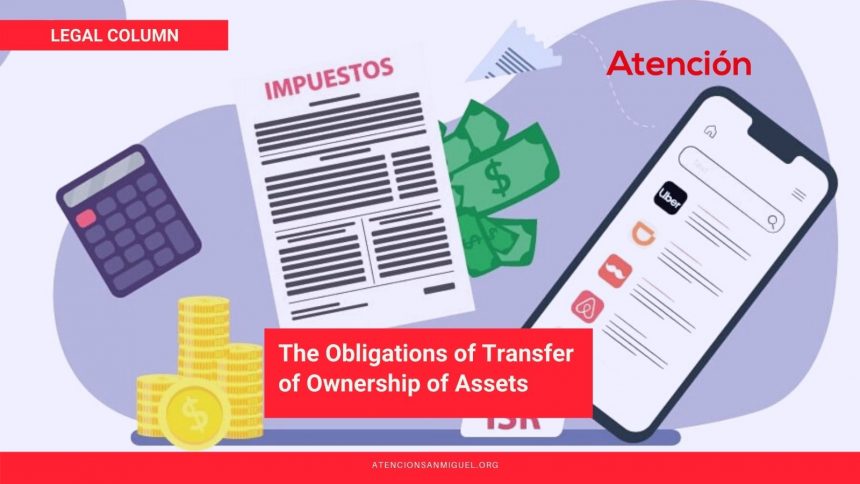By Ángel Marín Díaz
As we have already said, goods whether liquid assets or real property and/or intellectual rights can be used by those who have a property title over them, the most common benefits being buying and selling as well as renting.
These three acts give rise to obligations for the parties that intervene in these circumstances. In the case of buying and selling the person who sells any good has the obligation to pay taxes to the government because that situation is a commercial act. Taxes are calculated depending on the profit obtained as a result of the sale since someone regularly buys at a low price and then sells at a higher price, thus obtaining a profit. In this type of exchange the government requires a contribution of your finances.
The same thing happens with someone who obtains a profit for renting out an asset that he/she owns. It is true that in real life most people try to reduce the payment of taxes as much as possible, but in all acts of commerce in which there is ultimately an economic benefit for one of the parties, the owner is required to contribute to the capital of the public treasury a part of said profits.
On the other hand, the buyer has the same obligation, since the acquisition of real property causes it to be known by society that said person has economic funds to satisfy needs and/or tastes, which obviously suggests to the public treasury that the person has a way of obtaining economic income, which places him in a situation of equality before taxation and revenue.
The taxes for the sale of a good, for the provision of a service, or on the contrary the purchase or the satisfaction of a given service are wide and varied, and are not applicable in all cases and may be federal, state and municipal. It depends on the act of commerce that is going to be carried out.
Sometimes we can be responsible to several financial authorities since each level of government has its own taxation schedule which according to the laws within its territory result in taxes that are imposed and must be paid.
It is extremely important to have appropriate fiscal planning for future sales beginning with the point of purchase because there are many ways to take advantage of important capital gains tax exemptions. I always recommend using not only a Notario for closing but also having a professional closing team to advise and calculate fiscal responsibility before entering into a purchase or sale agreement.
For more specific information on the matter, as well as all legal and notarial services, fiscal planning including residential and commercial closings, please contact the author:
Ángel Marín Díaz at info@inmtec.net and 415 121 9005.

